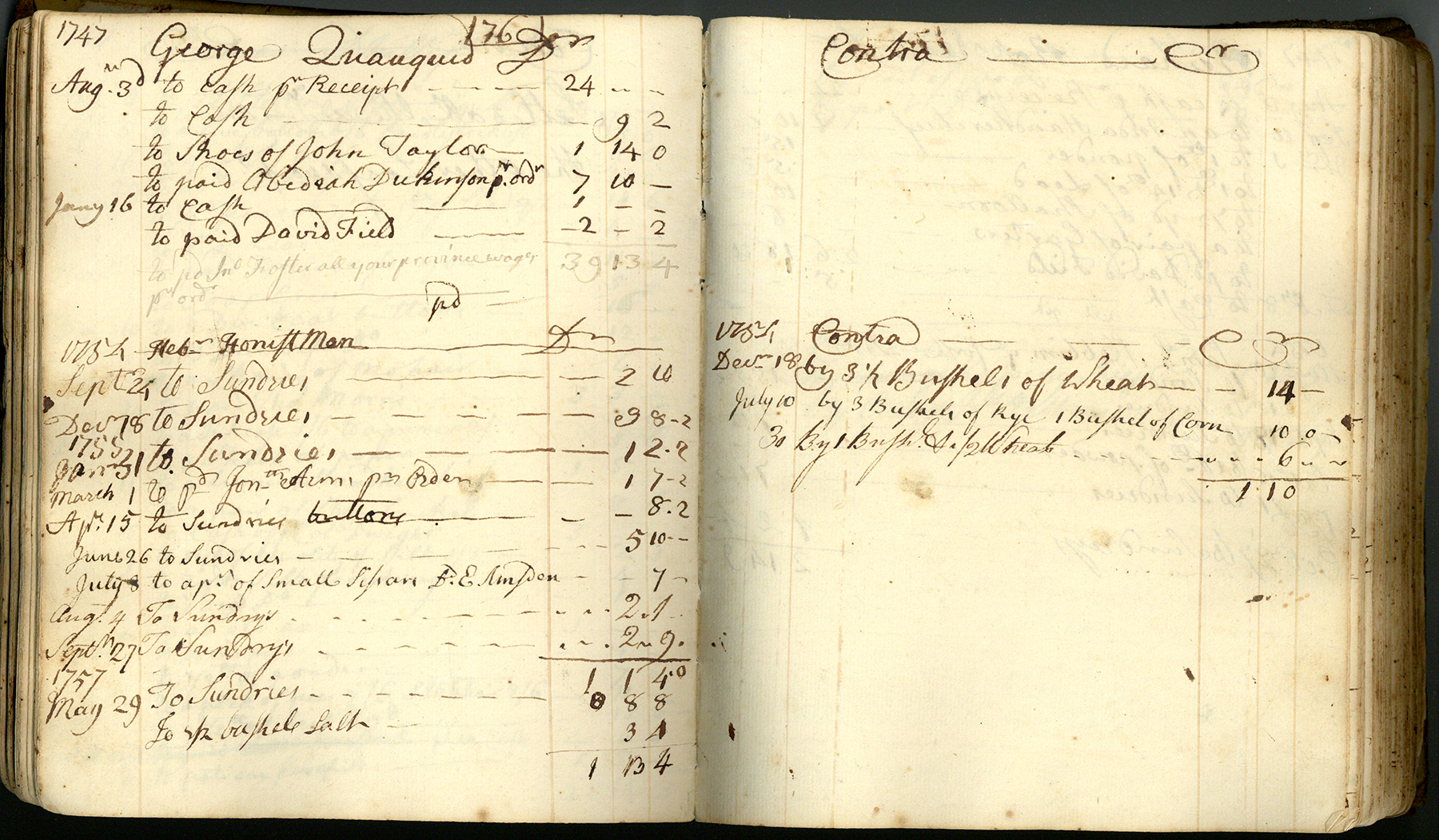About
Like other store owners in the 18th century, Elijah Williams kept daily accounts of what his customers bought, how much they owed, and how they paid for their purchases. We know from Williams' account book that a free Black man, Heber Honestman, made a number of purchases in the spring and summer of 1754. Heber. formerly enslaved, owned a farm in Huntstown (today Ashfield, Massachusetts), about 17 miles west of Deerfield. His purchases included scissors, buttons, salt, and "sundries", meaning miscellaneous items. He paid William in grain--wheat, rye, and corn-- as payment.
Transcript
| 1754 |
Hebr HonestMan |
|
|
Dr |
| Sept 24 |
to Sundries |
|
2 |
10 |
| Decr 18 |
to Sundries |
|
9 |
8-2 |
| 1755 |
|
|
|
|
| Jan 31 |
to Sundries |
|
1 |
2-2 |
| March 1 |
to pd Jon.n per Order |
|
1 |
7-2 |
| April 15 |
to Sundries buttons |
|
|
8-2 |
| June 26 |
to Sundries |
|
5 |
10 |
| July 8 |
to a pr. of Small Sissars Dr. E Amsden |
|
|
7 |
| Augt. 4 |
Sundry’s |
|
2 |
1 |
| Septbr. 27 |
To Sundry’s |
|
2 |
9 |
| |
|
_____ |
_____ |
_____ |
| 1757 |
|
1 |
1 |
4.0 |
| May 29 |
To Sundries |
0 |
8 |
8 |
| |
To 1⁄2 bushel Salt |
|
3 |
4 |
| |
|
1 |
13 |
4 |
|
| 1754 |
Contra |
|
|
Cr |
| Dec.r 18 |
by 3 1/2 Bushels of Rye of Wheat |
- |
14 |
- |
| July 10 |
by 3 Bushels of Rye 1 Bushel of Corn |
|
10 |
0-2 |
| 30 |
By 1 Bush.l & 1/2 lb Wheat |
|
6 |
|
| |
|
_____ |
_____ |
_____ |
| |
|
1 |
10 |
|
|
